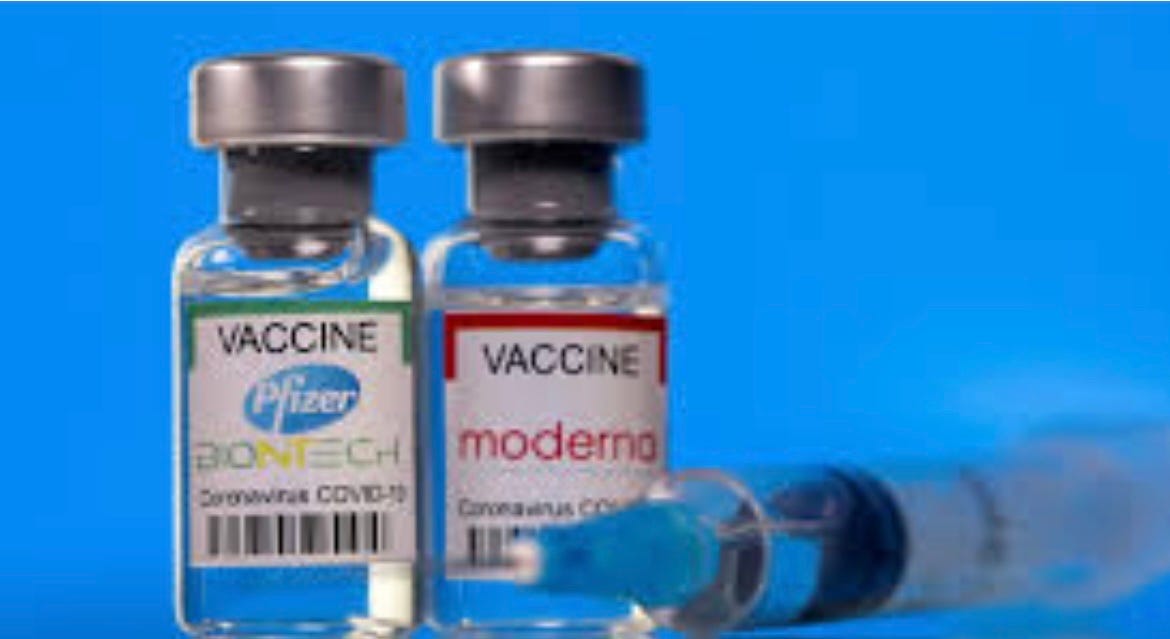A 10-point primer on why the mRNA Covid shots are different from and riskier than other vaccines
Guest Post by Alex Berenson
Many of you have asked for this as a way to talk to friends or family, and with another (another!) jab push coming, it’s time
A reader wrote yesterday:
I have a question, or maybe a request. Have you written, or could you write, a concise essay on why Americans should be cautious about getting vaccinated and/or getting boosted today?
Our daughter is a 21 year old nursing student who had to get vaxxed in order to begin nursing school and then boosted later on to continue school.
We are concerned that when she graduates and gets a job this summer, the hospital will require another booster (plus potentially more boosters down the road). She has not paid close attention to the vaccine debate and when I attempt to articulate why a young healthy person should be cautious (reluctant….or maybe adamantly opposed) about more boosters, I am unable to make the case concisely and cite evidence.
But I’ve heard you do just that on the radio.
So I’m wondering if you have something written the makes the basic case…
I don’t have anything written. But I should.
Many of you have asked for something like this since 2021, usually not for yourselves as much as family members or friends, or sometimes to present at public hearings around the Covid jabs. It’s all on the Stack in some form, but sometimes I forget that not everyone has time to read every word of Unreported Truths with the incredibly close attention it of course deserves. (Yesterday’s news wraps tomorrow’s fish, as wise reporters used to say.)
So without further ado, here are 10 crucial facts about the mRNAs – the Covid shots from Pfizer and Moderna, the only jabs in wide circulation in the United States. The list is essentially chronological, from concept through trial to widespread use.
I thought about providing supporting evidence and full explanations for each of these points, but the Stack would be 5,000 words. I will provide a longer write-up for the first point, to give you a sense of how a full report might look.
—
(10 Things I Hate About You)

—
1: mRNAs are not vaccines in any traditional sense. They work in a very different way.
2: Before 2020 mRNA biotechnology was – at best – several years from use outside clinical trials. The scientists working on it were struggling with the risks of repeated dosing.
3: The two large clinical trials in 2020 from Pfizer and Moderna that led to the approval of the mRNAs did NOT show that they reduced deaths from Covid, or from other causes.
4: mRNAs were not proven to work better or to be safer than – or even as safe as – traditional vaccines. They were not and have never been tested head-to-head against traditional vaccines.
5: The clinical trials showed the mRNAs caused more and more severe side effects than most traditional vaccines, especially flu shots. Real-world experience confirmed the trial findings.
6: The major clinical trials were effectively stopped in early 2021, and as a result we do not have long-term placebo-controlled safety data on the mRNAs.
7: We also do not have long-term controlled data on their effectiveness. This gap matters less, though, since everyone now agrees that – at best – they worked against Covid infection or transmission for a few months in 2021.
8: The evidence health authorities offer for their claims that the shots work against severe disease and death – even after they fail against infection – comes from “observational” studies. Those are hopelessly untrustworthy. The reason is that people are generally not vaccinated if they are on or near their deathbeds – and terminally ill people are obviously at very high risk of death from all causes, including Covid.
In essence, the people who receive vaccinations cannot be compared to those who do not. Health authorities are well aware of this issue, but they ignore it, because it enables them to claim the vaccines work.
9: The mRNAs appear to have zero or negative effectiveness against Omicron infection. Negative effectiveness means they may actually increase the risk of infection. Some studies show that the infection risk RISES with each additional dose.
10: Data from many countries that used mRNAs shows the booster campaigns in early 2022 and late 2022/early 2023 coincided with increases in all-cause deaths. This correlation is particularly striking in the second campaign, because it cannot be attributed to Covid.
—
—
DETAILS FOR 1: The mRNAs work very differently than older vaccines.
Until recently, most vaccines were either “live attenuated” or “inactivated” viruses. Either way, they contained viral particles treated so that they could reproduce only weakly or not at all. They also contained an “adjuvant,” an unrelated material that spurred the immune system to recognize the weakened virus and mount a response.
Both conceptually and practically, this type of vaccination is simple.
The concept is easy to explain: introduce a weaker version of a virus to the immune system, so it can build its defenses, for a head start when the real virus – whether polio, smallpox, or anything else – arrives.
Further, as a practical matter, scientists can now fairly easily isolate, grow, purify, and kill whole viruses.
Thus vaccination has been around in some form for centuries. Many inactivated or attenuated-virus vaccines have been available for generations.
—
But the mRNAs are nothing like older vaccines, except in the sense that they attempt to build an immune response in advance of illness. They hijack the machinery of your cells to make them produce specific proteins that are part of a virus.
In that sense, they work as an actual virus does. But they don’t make the whole virus, only a piece scientists have chosen in the hope of maximizing the immune response.
Beyond being complex conceptually, the mRNAs come with practical difficulties.
The immune system works to destroy foreign mRNA as soon as it enters the body. For this reason, mRNAs do not need to be given with an adjuvant. Their mere presence provokes the immune system to fury.
To beat this problem, scientists protect the mRNA with a shell (as a real virus protects its own RNA) called a lipid nanoparticle. They also modify the mRNA, changing it chemically so that it is less likely to provoke the immune system before it reaches a cell. In fact, a more accurate description of the mRNA shots would be “modRNAs.”
But scientists do not know whether long-term effects of injecting humans with either lipid nanoparticles or modified mRNA strands may be. Before 2020, the mRNAs had been given to humans only in small clinical trials, and no long-term safety data on them was available.
This article has been archived for your research. The original version from The Burning Platform can be found here.



